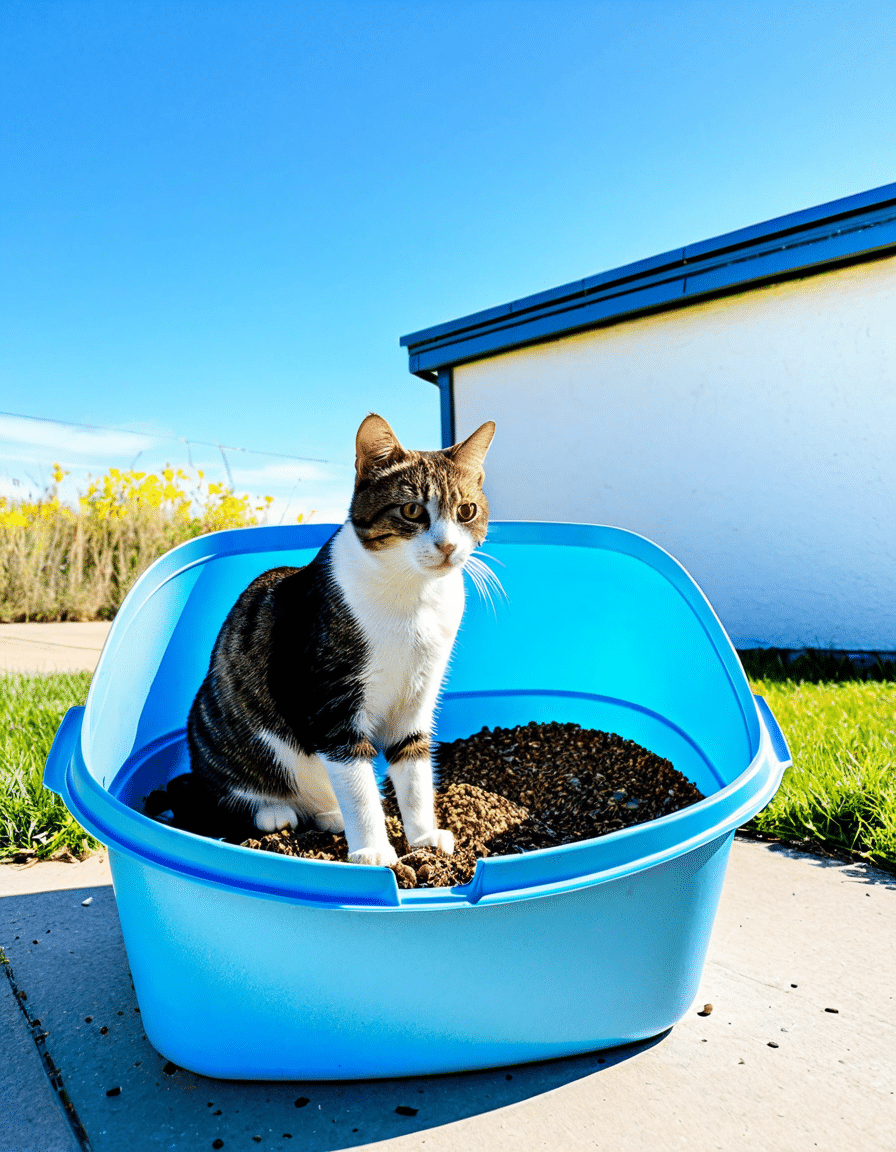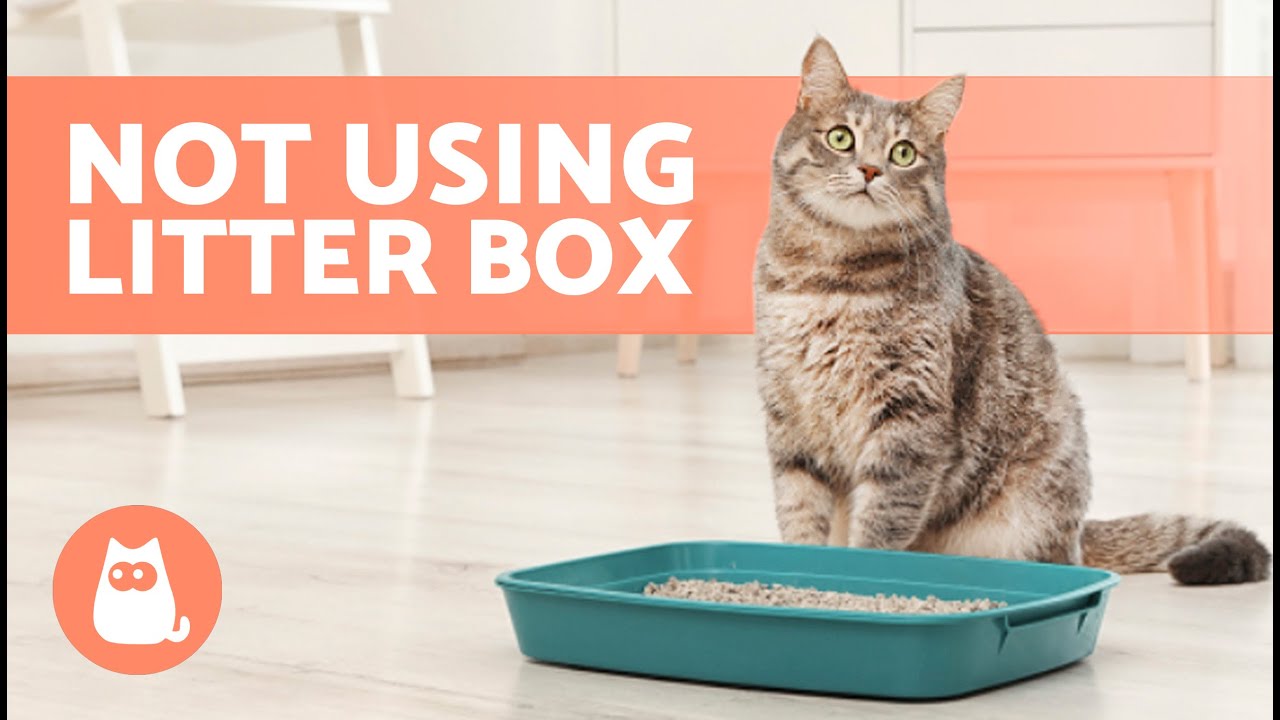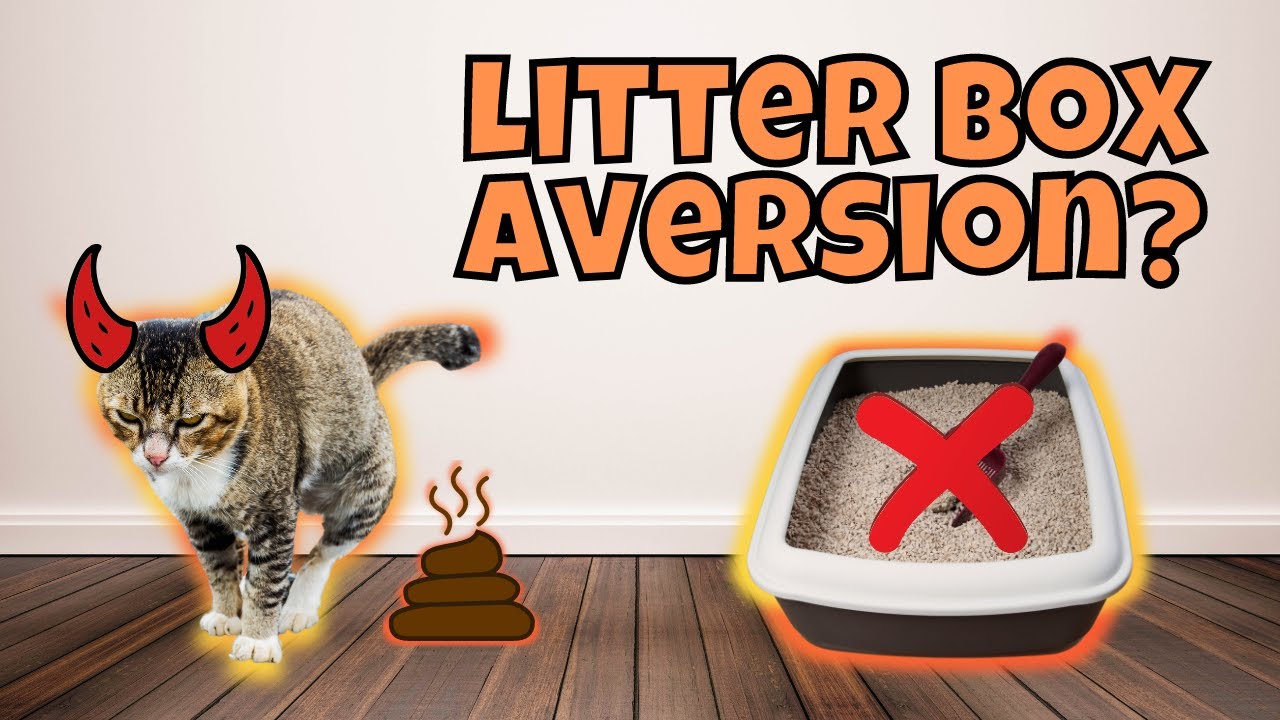Cats are known for their cleanliness and tend to have strict bathroom habits. So, what’s going on when you notice your cat pooping outside of the litter box? This behavior can be a red flag, hinting at both emotional distress and potential health problems. It’s crucial to investigate the reasons behind this upsetting situation to get your feline friend back on track.
In this article, we’re diving deep into the factors influencing your cat’s decision to eliminate away from their litter box. Understanding whether it’s stress, illness, or something else entirely can help you make informed decisions for your pet’s well-being. Let’s get into it!
## Cat Pooping Outside of Litter Box: Stress or Illness?
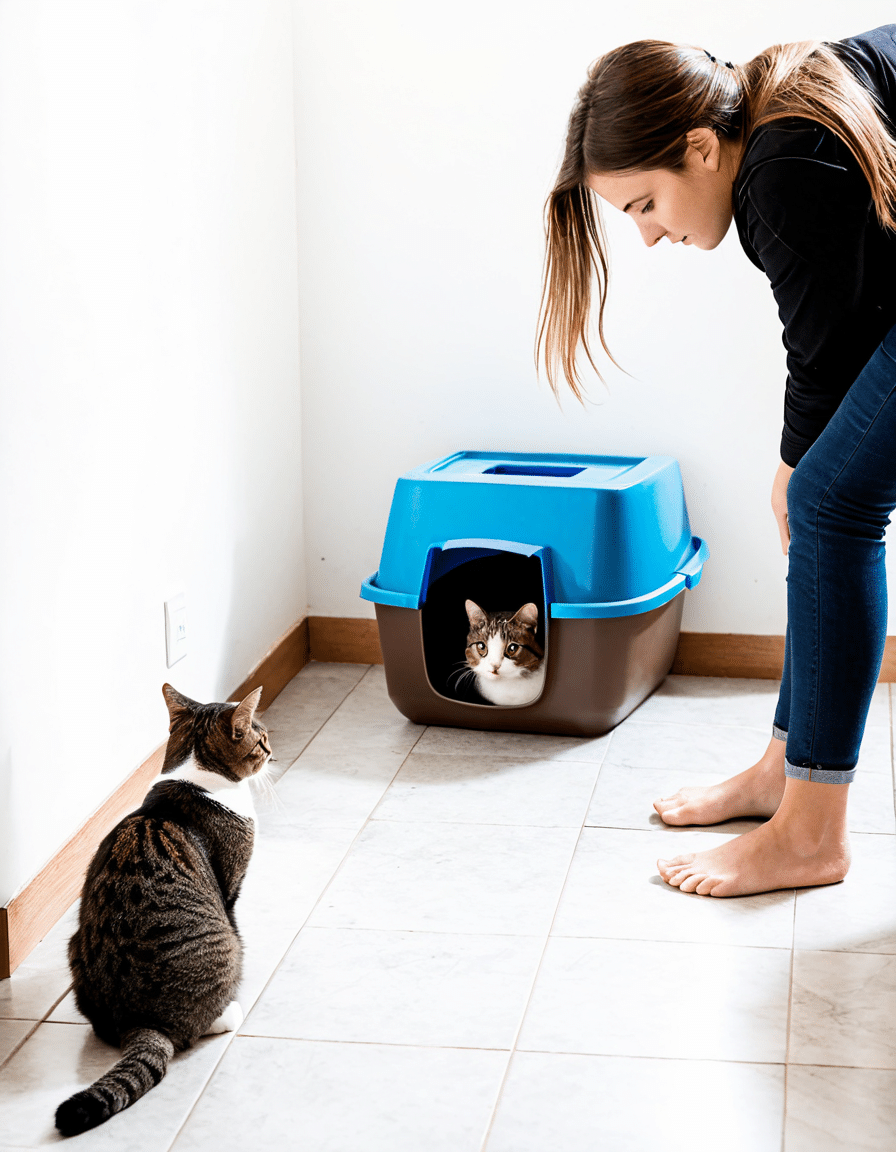
1. Stress and Anxiety
Just like us, cats can feel stressed, and this emotional turmoil often manifests as behavioral changes. Common triggers include significant changes in their environment, like getting a new kitten, a baby entering the house, or even remodeling your living room. For example, if you’ve recently brought home a new puppy that won’t stop whining in the crate, this could make your cat nervous. As a result, you might find your cat pooping on the floor instead of in their box.
2. Medical Issues
Illness can often lead to unusual behaviors in cats. Conditions such as urinary tract infections or gastrointestinal issues can make it difficult for your cat to use the litter box. If you’re observing other concerning signs—like blood in your cat’s stool or them appearing lethargic—you should immediately consult your veterinarian. Remember, addressing medical problems as soon as possible is vital for your cat’s health.
3. Litter Box Aversion
Sometimes the issue isn’t stress but rather an aversion to the litter box itself. If the box is dirty, the type of litter is unappealing, or the box is placed in a high-traffic area, your cat is likely to turn up their nose at it. Keep the box clean and consider experimenting with different types of litter, like clumping or unscented options. After all, if your cat keeps peeing on the bed instead of using their box, it’s time for a change!
4. Inadequate Number of Litter Boxes
If you live in a multi-pet household, it’s essential to have enough litter boxes available. The general rule is one box per cat, plus an extra. If your cat feels they can’t access a litter box when nature calls, they may resort to pooping on the floor. This is especially relevant if your dog digs at the bathroom rug, causing your cat to shy away from their usual places.
5. Territorial Marking
Cats sometimes poop outside the box to establish their territory. This behavior can increase if you’ve introduced new animals into the home or if there are significant changes in their environment. For example, if a new cat moves in and your feline feels like its space is threatened, you might witness them engaging in territorial marking through inappropriate elimination.
6. Behavioral Issues
Your cat’s behavior can be influenced by various stressors, including boredom or lack of stimulation. If your feline friend feels restless, they may express their discomfort through inappropriate elimination. Investing in toys, engaging in interactive play, and creating vertical spaces like cat trees can significantly help enhance your cat’s well-being and reduce the likelihood of pooping outside the litter box.
7. Cognitive Dysfunction Syndrome
Older cats can develop Cognitive Dysfunction Syndrome (CDS), similar to dementia in humans. This condition can confuse your pet, affecting their ability to remember where their litter box is. Symptoms could include wandering aimlessly or forgetting their litter training. If you suspect your older cat is facing this issue, consult your vet about diets and treatment options to help manage their behavior.
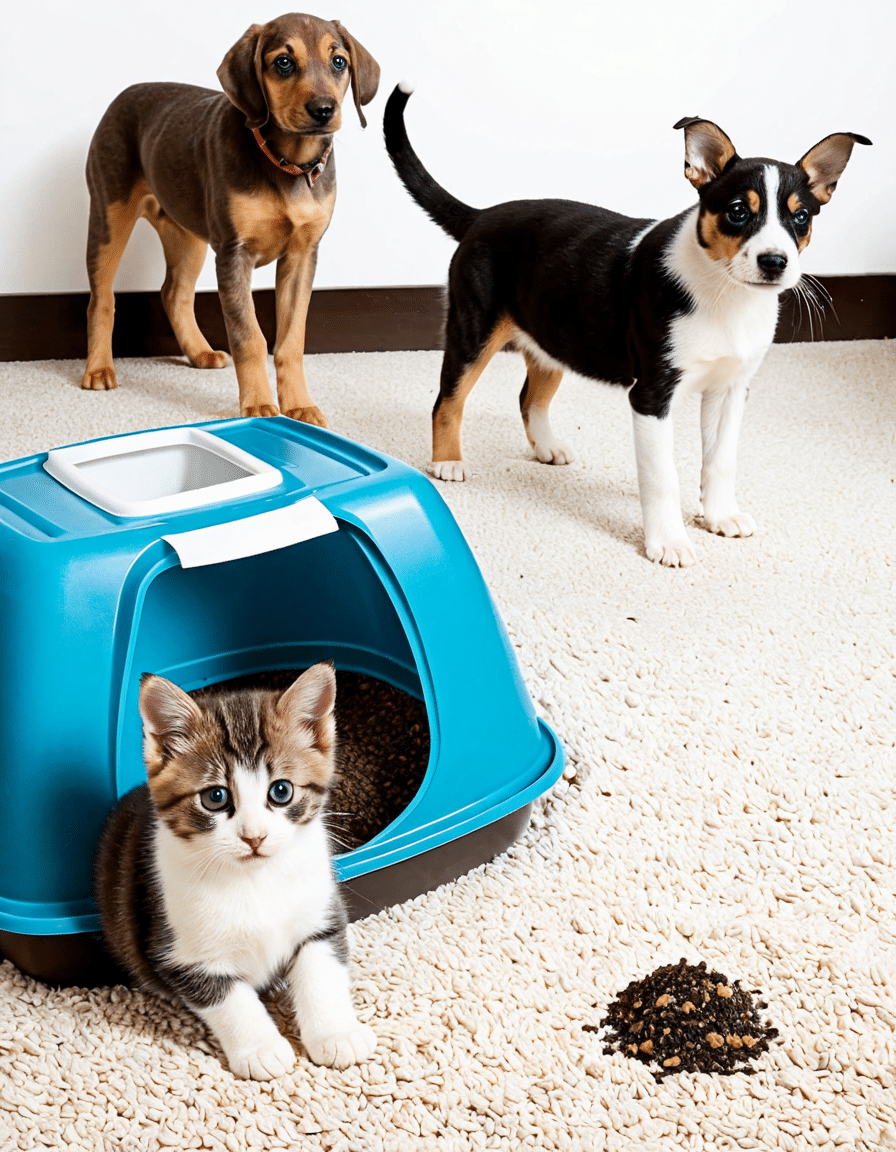
How to Encourage Proper Elimination
If you’re dealing with a cat pooping outside of the litter box, don’t panic! Here are some practical steps to help remedy the issue:
Despite the frustrations that come from a cat pooping outside of litter boxes, understanding the core issues and addressing them can make a world of difference. With a keen eye for changes in behavior, you’ll be well-equipped to implement effective changes that promote a happier and healthier cat. Sometimes all it takes is a little patience and a few adjustments to set things right.
Remember, when we notice unusual behaviors, like a cat urinating on the bed or pooping on the floor, it’s not just an inconvenience; it’s an opportunity to better understand our furry friends. And with love and attention, we can help them navigate through any stressors they face in this ever-busy world.
If you want to keep your cat safe and comfortable while you travel, consider using a designated cat car seat to ensure they remain secure. Now, let’s give your cat the comforting environment they deserve, one small change at a time!
Cat Pooping Outside of Litter Box: Fun Trivia and Interesting Facts
It’s an undisputed fact that cats are quirky little creatures. You may think you know your feline friend inside and out, but did you know that cat pooping outside of the litter box can be linked to a wide variety of causes? From stress to underlying illnesses, it’s important to pay attention to these signals. And speaking of quirky, take Joe from Impractical Jokers. Just like his antics can leave you questioning his sanity, your cat’s behavior might be more than just a simple response to their environment.
Unpacking the Causes of Unwanted Behavior
When your cat decides to go rogue and leave their business outside of the litter box, it can be frustrating for any owner. Often, a change in their surroundings can trigger this behavior. Interestingly enough, studies have shown that even something as drastic as a new pet or human in the home can make a cat feel like their territory is threatened. Fun trivia? Just like the remarkable Scottish Collie, which displays unique traits suited for various tasks, every cat has its own personality that influences its habits.
The Health Angle
If a health issue is suspected, you may need to think like a detective. Issues like urinary tract infections or other ailments can drive a cat to seek alternatives to their litter box. Did you know that the lifespan of a Toy Australian Shepherd can reach 15 years or more, but factors like stress and sickness can drastically affect how long they (and cats) enjoy good health? Always keep an eye out for those telltale signs of distress, whether it’s in your feline friend or even a pet like the lively White, Black, and Brown Dogs that share your space.
The Importance of Attention
Ultimately, it’s all about understanding your furry companion. Just as fans are curious about How old Is Ice Spice? or discuss pop culture moments, pet owners should maintain the same curiosity about their furry friends’ behaviors and needs. If your cat is pooping outside of the litter box, take a closer look at any stressors or health issues that may be lurking. Sometimes, just being a little more in tune with their quirks can make a world of difference. Plus, getting to know your pet’s behavior can help avoid those frustrating messes, letting you enjoy their cuddly company to the fullest!
